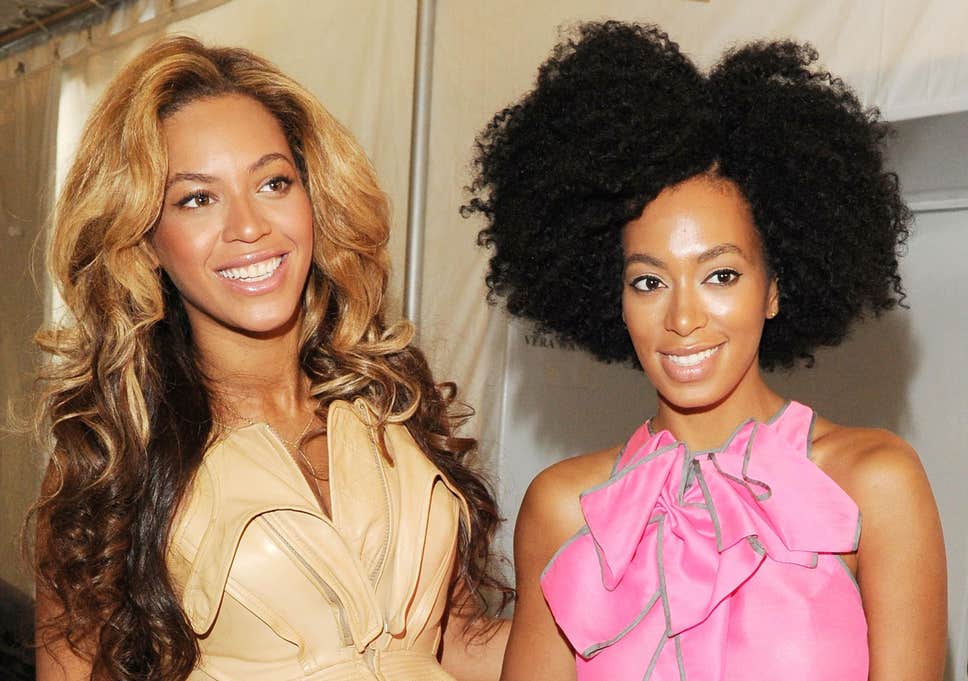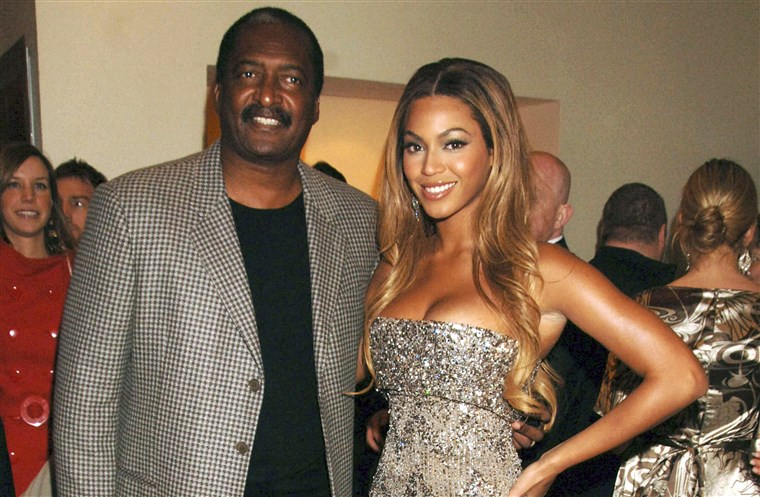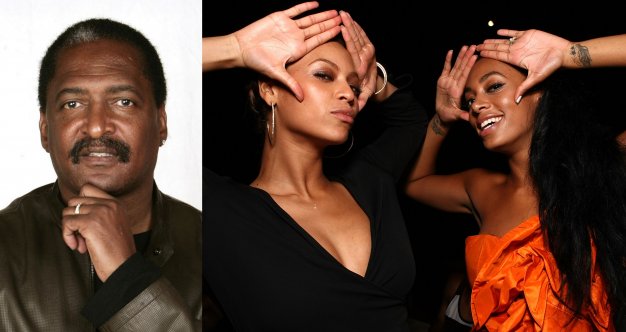In a new interview, Beyonce’s dad, Mathew Knowles, revealed that his shocking breast cancer diagnosis was linked to an inherited gene mutation called BRCA2, and that shortly after his diagnosis, his daughters Beyonce and Solange got tested to see if they had the same gene mutation, too. To the relief of “Bey” and Solange’s millions of devoted fans, Knowles told TMZ that the test results confirmed that neither of the girls had inherited the gene mutation. Does this mean they’re in the clear for breast cancer? SurvivorNet turned to the experts to clarify a thing or two about family history, inherited gene mutations, and cancer risk.
"It is essential that doctors help patients understand what their individual breast cancer risks may be based on specific mutations,” says Dr. Elizabeth Comen, a breast cancer oncologist at Memorial Sloan Kettering Cancer Center and a medical advisor to SurvivorNet. In the case of the Knowles family, this specific mutation is BRCA2.
Read MoreWhat is BRCA2?
The gene mutation that Matew Knowles, 67, just revealed he had, “BRCA2” is one of two mutations of the “BRCA” gene, BRCA1 and BRCA2, which have been linked to an increased risk of multiple types of cancer — most notably, breast and ovarian cancer in women. It is estimated that about 72 percent of women who inherit a BRCA1 mutation and about 69 percent of women who inherit a BRCA2 mutation will develop breast cancer by the age of 80, and that roughly 44 percent of women who inherit a harmful BRCA1 mutation and about 17 percent of women who inherit a harmful BRCA2 mutation will develop ovarian cancer by the age of 80.
But the gene mutations aren’t exclusive to women; they can increase the risk of prostate cancer and breast cancer in men, and pancreatic and stomach cancer in both men and women.
RELATED: Yes, Men Can Get Breast Cancer, Too
Why Does a BRCA Mutation Increase Cancer Risk?
As Dr. Rebecca Arend, Associate Scientist at the University of Alabama, Birmingham, explained to SurvivorNet in a previous interview, "What a BRCA mutation is, is a defect in your ability to repair a double-strand break (in your DNA)." When the BRCA gene has a mutation, that basically means that cells have a tougher time repairing their DNA the “right” way. When cells repair their DNA the wrong way, that’s when cancer is more likely to develop.
RELATED: What is a BRCA Mutation?

Who Can Have a BRCA Mutation?
The BRCA mutation (which is passed on from a father or a mother), can cause a variety of cancers — and Matthew Knowles’ breast cancer diagnosis goes to show, it’s not a “women-only” gene. If one of your first degree relatives carries a BRCA gene mutation, there is a 50-50 chance you're carrying it, too. And because BRCA mutations aren't tied to the X or Y sex chromosome, that blood relative does not need to be a woman. You're just as likely to inherit the risks of cancers associated with BRCA from your father as you are from your mother. This is why, when Mathew Knowles learned that his male breast cancer diagnosis was linked to the BRCA2 gene, as he told ABC’s “Good Morning America,” the first calls he made were to his daughters, Beyonce and Solange, to let them know that they had a 50/50 chance of carrying the gene, too.

RELATED: BRCA Mutations Can Increase the Risk for the Type of Cancer Alex Trebek Has, Too
Ethnicity plays a role in how likely someone is to have a BRCA mutation, too. For example, people of Ashkenazi Jewish descent have a higher prevalence of harmful BRCA1 and BRCA2 mutations than people in the general U.S. population. Studies have also highlighted a higher prevalence of the mutations among people with African ancestries.
How Did Beyonce and Solange Find Out that They Didn’t Have the Gene?
After learning about their father’s gene mutation, Beyonce, 38, and Solange, 33 went in for genetic testing. This probably means they had their blood drawn, then the DNA was analyzed in a lab. There are a number of specific genetic tests that can look for these mutations, and it usually takes about a month to get the results back.
"Genetic testing can empower you with such important information," Dr. Beth Karlan, gynecologic oncologist at UCLA Medical Center, told SurvivorNet in a recent interview.
Does This Mean Beyonce and Solange Can’t Get Breast Cancer?
The fact that Beyonce and Solange don’t have the BRCA2 mutation means that they don’t have the high 69 percent chance of getting breast cancer, but it doesn’t mean that they’re immune to cancer at all. There are tons of different factors that can cause cancer — including a lot of gene mutations other than BRCA, some of which are inherited and some of which are “acquired,” meaning you can develop them over your lifetime (unhealthy habits and exposure to carcinogens like cigarette smoke can up the chances of this happening).
RELATED: What Are the Risk Factors For Breast Cancer?
Even though BRCA mutations make it much more likely that someone will get cancer, only a little over 10 percent of breast cancers are linked to BRCA. So Beyonce and Solange can still get cancer just like everyone else, they’re just not at that super-high risk. (It’s estimated that about 12 percent of women overall get breast cancer in their lifetimes, although there are a lot of other risk factors that affect this, such as age). Bey and Solange should still follow the screening guidelines that other women follow, such as getting routine mammograms.
RELATED: When Should I Get a Mammogram?
What If Beyonce and Solange Did Have the BRCA2 Mutation — What Would That Mean?
When a woman finds out they have an inherited BRCA gene mutation, they’re essentially finding out that they have a much higher risk of getting breast cancer than other women do (as well as a higher risk of ovarian cancer and fallopian tube cancer, among others). Given those heightened risk factors, women with BRCA mutations have several decisions to make. Some women choose to go the “Angelina Jolie route” and have both of their breasts removed as a preventative measure (called a “prophylactic mastectomy“). This procedure doesn’t completely eliminate the breast cancer risk, but it can reduce it up to 95 percent, making it a popular option for a lot of women who learn they have a BRCA mutation.
RELATED: What are the Options if You Have a High Risk of Developing Breast Cancer?
“In my personal opinion, most women with a BRCA1 or BRCA2 mutation end up getting prophylactic surgeries,” Dr. Comen told SurvivorNet in a previous conversation about prophylactic mastectomies.
Dr. Elizabeth Comen spoke with SurvivorNet about prophylactic mastectomies for high-risk women
Importantly, a prophylactic mastectomy doesn’t eliminate the risk for other cancers associated with BRCA mutations. Some women with BRCA mutations go a step further and choose to get a surgery to remove the uterus, ovaries, and fallopian tubes (Christina Applegate had this surgery).
RELATED: 47-Year-Old Christina Applegate Had Her Breasts, Ovaries, and Fallopian Tubes Removed
Of course, there are a lot of factors to consider with preventative surgeries like these. Removing the ovaries and uterus means a woman won’t be able to have children naturally, and that might be an important factor (as it was to Christina Applegate, who waited to have the surgery until her daughter was born). Cost may also be a factor, since insurance companies vary in terms of whether they’ll pay for preventative surgeries like prophylactic mastectomies.
Learn more about SurvivorNet's rigorous medical review process.


